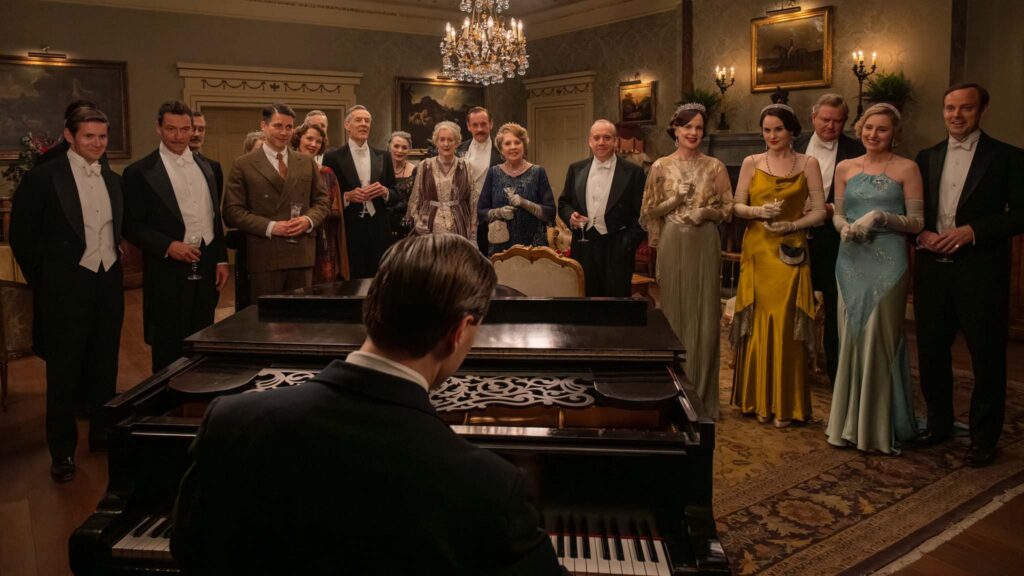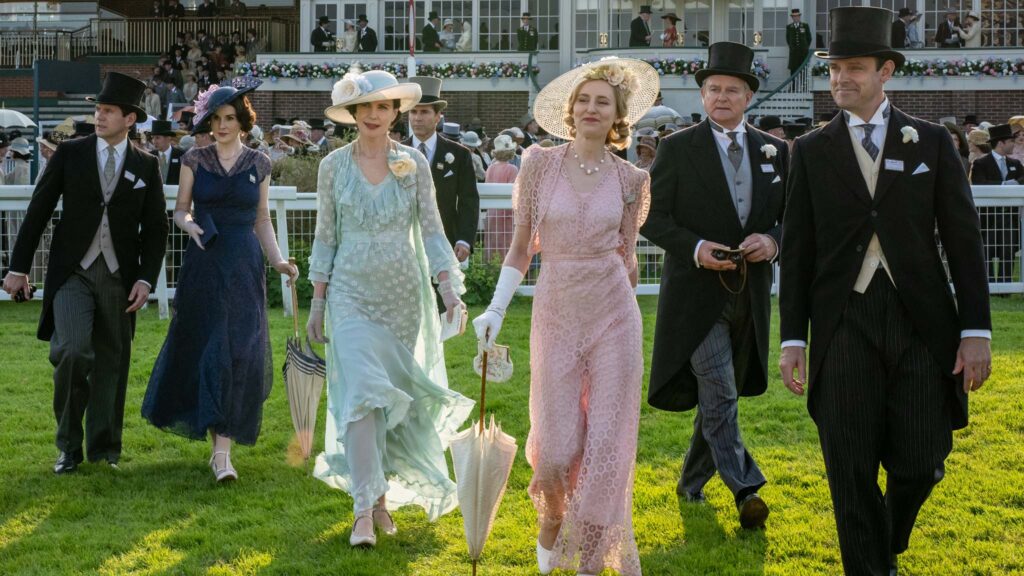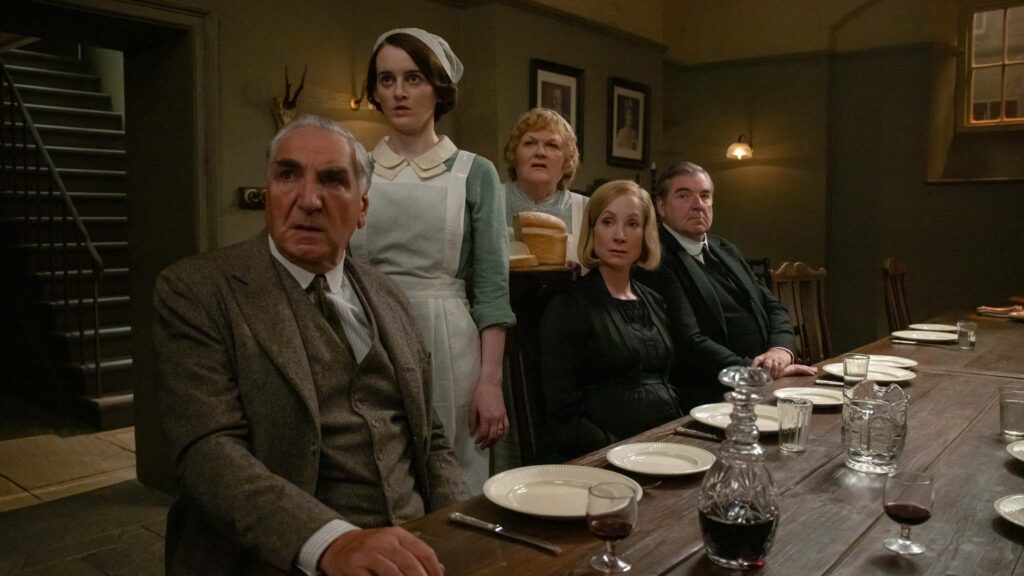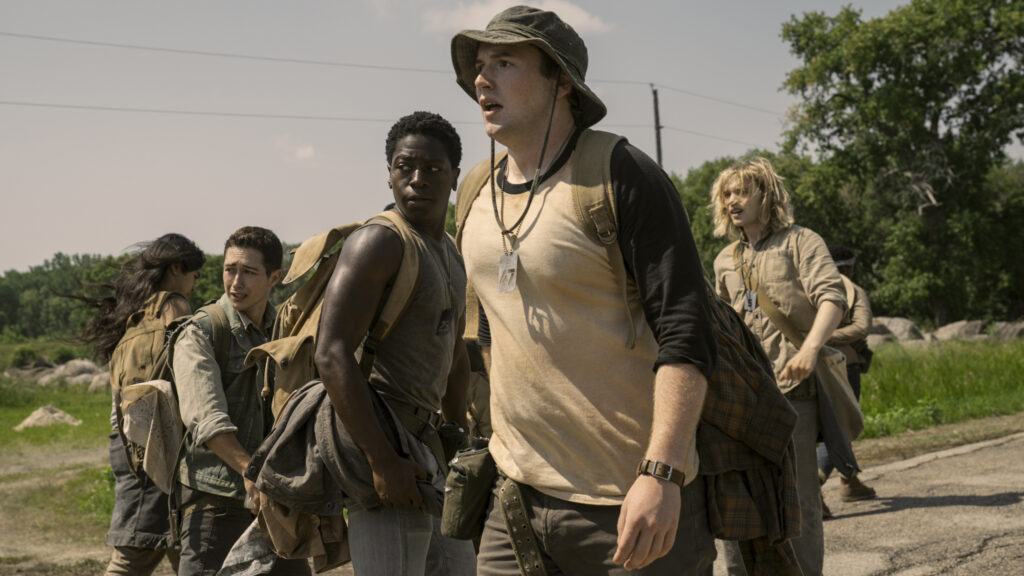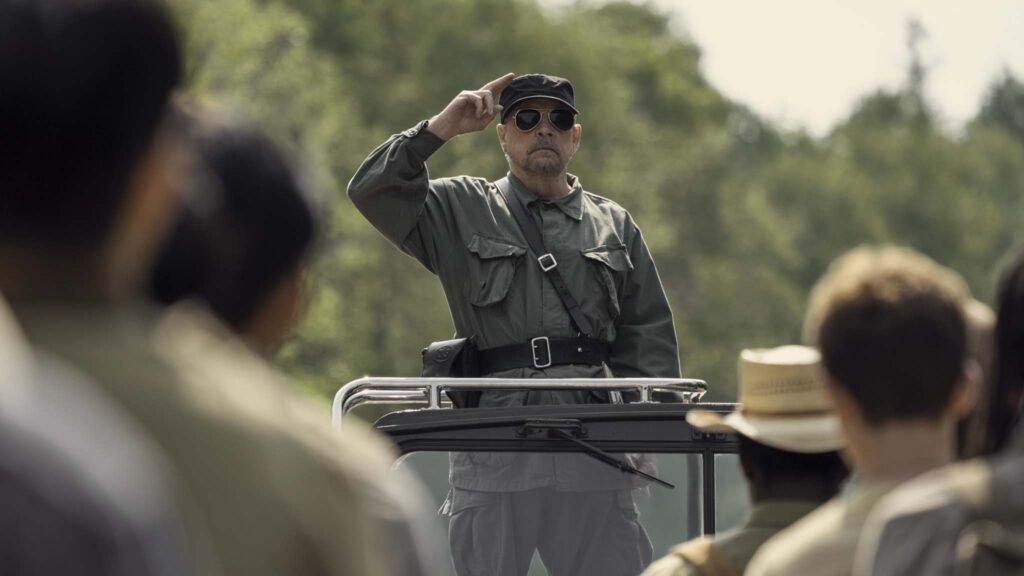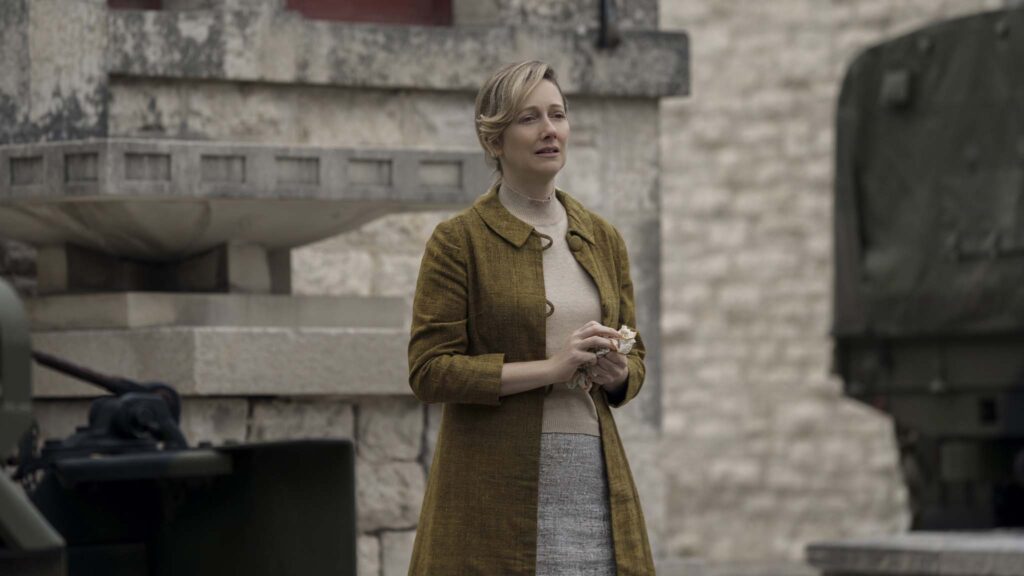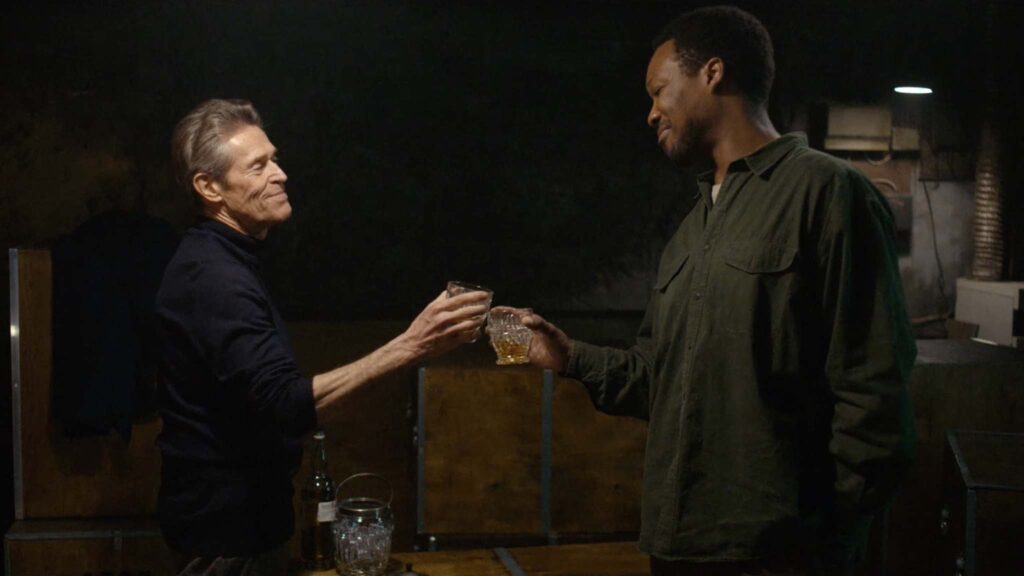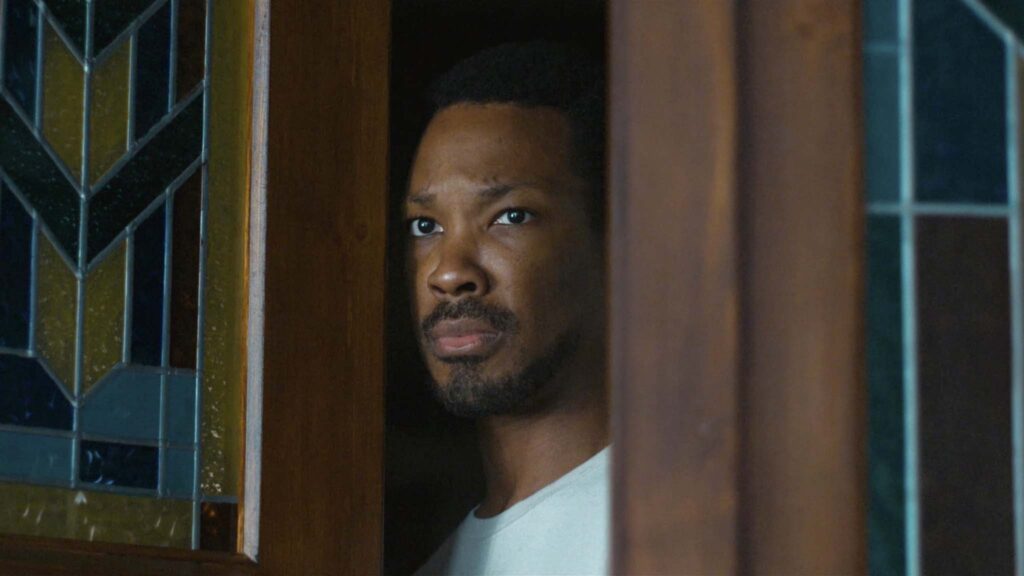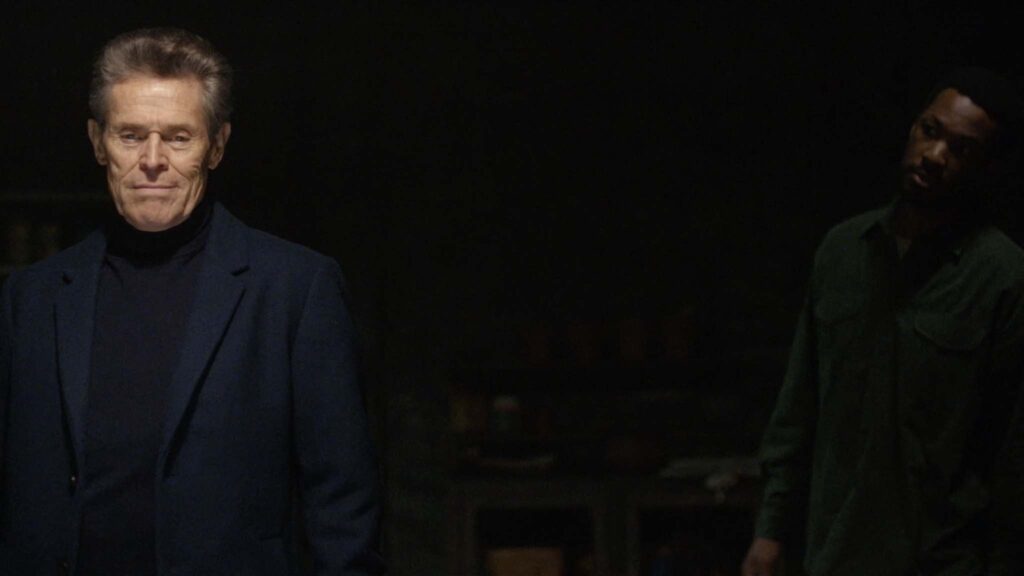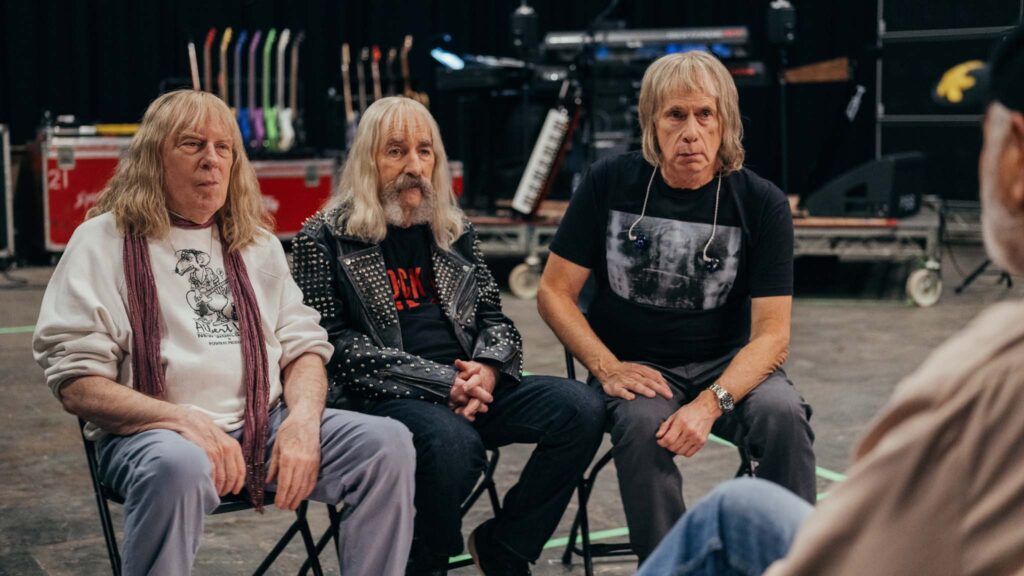Drama
Downton Abbey: The Grand Finale (PG)
Review: Julian Fellowes’ lavish period drama comes to a heartfelt and gushingly sentimental conclusion with a third big screen instalment directed by Simon Curtis, which struggles to conjure up enough satisfying drama and intrigue to fill two hours of gorgeously lit screen time. Downton Abbey: The Grand Finale teases pomp and majesty with its sweeping subtitle but the script divides its cheerios across a pedestrian running time, interspersed with biting one-liners for which Fellowes and his chocolate box creation have become rightfully renowned (“The hereditary system can’t afford to be sentimental!”).
The screenwriter can’t resist an in-joke using Mr Molesley (Kevin Doyle) as his mouthpiece. In the second film, the butler unexpectedly tastes fame by working on a film script and in this third instalment, he pursues this new vocation and ruefully observes how actors often get the credit that should be reserved for behind-the-scenes talent. “In many ways, the writers are the real stars of cinema,” he notes, patting himself on the back.
Maggie Smith’s absence is keenly felt although Penelope Wilton steps into the fray with a few biting asides. Otherwise, Curtis’s picture is cosy, comfortable and entirely predictable fan service down to the heavily signposted betrayal within the family ranks that is casually brushed under the antique rugs for the sake of a dewy-eyed resolution.
The Crawleys step into the 1930s with trepidation following the passing of the Dowager Countess. Robert Crawley, the Earl of Grantham (Hugh Bonneville), and wife Cora (Elizabeth McGovern) prepare to hand over the day-to-day running of the estate to Lady Mary (Michelle Dockery) until news of her divorce from Henry Talbot stains reputations. “This really is the night that shook the world,” whispers Daisy (Sophie McShera) as she prepares to fill the void left by soon-to-retire head cook, Mrs Patmore (Lesley Nicol).
Daisy’s husband Andy (Michael Fox) anticipates his promotion now Thomas Barrow (Robert James-Collier) has left the house to work as a personal assistant to actor Guy Dexter (Dominic West) and Mr Carson (Jim Carter) is semi-retired. Visitors to Downton dwindle, for fear of being associated with a divorcee. Cora’s brother Harold (Paul Giamatti) arrives regardless bearing his own terrible news but dashing companion Gus Sambrook (Alessandro Nivola) is a pleasant distraction for Lady Mary as she reluctantly accepts her social pariah status.
Downton Abbey: The Grand Finale is a polite farewell peck on the cheeks for fans who have gallivanted around the fictional Yorkshire country estate since 2010. Multiple departures from the ancestral home assiduously target tear ducts but casual viewers, who are unburdened by characters’ tangled histories, won’t be troubled by potential saltwater deluges. “They are quite hearty with each other,” naively observes one character about Barrow’s closeness to Dexter. Curtis’s film is quite hearty with us too.
Find Downton Abbey: The Grand Finale in the cinemas
Horror
The Long Walk (15)
Review: A short friendship is better than no friendship. So says one doomed participant of The Long Walk, a futuristic endurance contest imagined by writer Stephen King in his 1979 novel, which invites 50 young men to compete for their heart’s desire in exchange for maintaining a consistent walking speed of 3mph and outlasting their rivals. It’s a physically gruelling ordeal with one winner and no finish line, designed to inspire a dystopian United States of America in the aftermath of war.
“This is walk or die – simple as that,” coolly explains competitor 23, Peter McVries (David Jonsson), as Francis Lawrence’s horribly compelling film gets into its stride. When a walker slows down, gun-toting soldiers controlled by The Major (Mark Hamill) issue a first verbal warning. If the boy fails to increase their speed back to 3mph within 10 seconds, a second rebuke is issued. A third transgression demands a bullet to the brain.
Screenwriter JT Mollner intersperses this arduous trek for survival and untold riches with flashbacks to a character’s traumatic past that succinctly explains his motivation for putting one weary foot in front of another for hundreds of miles (tracked using on-screen captions). Lawrence is well versed in the wilful destruction of young lives having previously directed all but one of The Hunger Games films. He confidently navigates the repetitious nature of the dramatic premise to milk droplets of stomach-knotting tension from unfortunate medical incidents and a lost shoe sole. Violence is strong, punctuated with graphic injury detail.
Competitor 47, Raymond Garraty (Cooper Hoffman), enters the walk to honour the memory of his late father (Josh Hamilton) and make his mother (Judy Greer) proud. Conscious that his fate depends on trekking through the night, Raymond forms a fragile alliance with Peter (Jonsson), whose honesty is unflinching: “I like you, but if you fall over, I won’t pick you up.”
They jokingly adopt the ‘one for all and one for all’ mantra of the Musketeers, surrounded by boys representing different American states, including Hank Olson (Ben Wang), Stebbins (Garrett Wareing), Collie Parker (Joshua Odjick), Arthur Baker (Tut Nyuot), Richard Harkness (Jordan Gonzalez) and Gary Barkovitch (Charlie Plummer). While some competitors bond in perpetual motion, others provoke rivals into losing focus with fatal consequences.
The Long Walk is expertly paced at 108 minutes, eliminating the first boy from the competition in clinical fashion to open the bloodgates on explosions of gore. Hoffman and Jonsson deliver deeply moving, heart-on-sleeve performances that add flesh to the script’s bares bones characterisations. Lawrence and regular cinematographer Jo Willems artfully frame shots to focus on the reactions of the living while the fallen are dispatched in the background. Our imaginations bridge the divide considerably quicker than 3mph.
Find The Long Walk in the cinemas
Thriller
The Man In My Basement (15)
Review: If a deal seems too good to be true, it probably is. Logic and common sense shouldn’t be sacrificed at the altar of financial gain, but when times are tough and reality bites and leaves teeth marks, moral compasses can recalibrate true north to whoever wields money and power. Adapted by director Nadia Latif and Walter Mosley from the latter’s novel, The Man In My Basement is a teasing psychological thriller set in 1990s New York which establishes an uncomfortable master/servant power dynamic between a black homeowner, on the verge of foreclosure, and a wealthy white businessman who claims to make his money from “reclamations”.
A Faustian pact between the pair, weighted heavily in favour of one man, is sold as an easy seven-figure windfall in return for casual hospitality. As the script uncoils across two hours, like a snake roused from slumber after basking in the sun, Latif’s film gets lost in the dark of its philosophical musings about race relations and generational guilt, delivered by Willem Dafoe as meaty monologues. His on-screen pairing with Corey Hawkins as a cash-strapped son, who has recently lost his mother, energises a steady trickle of spoken exposition. The dramatic pay-off is insubstantial after the build-up and an intentional concealment of true motives.
Charles Blakey (Hawkins) is in dire financial straits after losing his job as a bank teller for allegedly stealing money from his drawer. He is poised to default on the house that has been in his family for eight generations in the historically African American community of Sag Harbour. The unemployed loner takes out his frustrations on good friends Ricky (Jonathan Ajayi) and Clarence (Gershwyn Eustache Jnr).
When all hope seems lost, enigmatic businessman Anniston Bennet (Dafoe) knocks at the front door with an intriguing offer: 1,000 dollars a day to take up temporary residence in Charles’s basement with a 10,000 dollars deposit up front to sweeten the deal. “Tell no-one of our agreement,” insists Anniston. Charles reluctantly accepts the proposal and is stunned when Anniston constructs a prison cell in the basement, where he intends to spend the next 65 days “reading, thinking, maybe writing” under the homeowner’s control. With cash sufficient to pay his debtors, Charles has time to reflect on a fractious relationship with his late uncle (Brian Bovell) and re-evaluate his assertion that he is “a good person with bad luck”.
The Man In My Basement flirts with ambiguity for an opening hour punctuated with creaking floorboards and ghostly apparitions, but Latif’s picture is like Anniston’s deal and flounders under close scrutiny. Hawkins and Dafoe are well-matched sparring partners, debating the complex nature of evil, and they illuminate scenes that cinematographer Ula Pontikos deliberates shrouds in gloom. A slow-burning and flawed character study shuffles out of the shadows.
Find The Man In My Basement in the cinemas
Comedy
Spinal Tap II: The End Continues (15)
Review: Released in 1984, rip-roaring mockumentary This Is Spinal Tap turned the volume dial up to 11 on the hilariously chaotic British heavy metal outfit, who claimed to being the loudest band on the planet. Their catalogue of hits included Stonehenge, Hell Hole and Tonight I’m Gonna Rock You Tonight. Poetic lyricism crescendoed on the track Big Bottom: “My baby fits me like a flesh tuxedo/I’d like to sink her with my pink torpedo.”
Such witty wordsmithery attracts a litany of high-profile admirers in this belated and warmly affectionate sequel directed by Rob Reiner. “That’s literature, really,” opines Sir Paul McCartney ahead of Spinal Tap’s reunion concert at Lakefront Arena in New Orleans after a 15-year hiatus. Roving lenses are in the right place at the right time to capture moments of rare candour and straight-faced insight in the run-up to the high-profile event.
Spinal Tap II: The End Continues is a well-intentioned cover version of one of the finest comedies of all time that seldom cranks the volume knob above six when it comes to full-throated belly laughs and cackles. Reiner’s script, co-written by lead actors Christopher Guest, Michael McKean and Harry Shearer, trades heavily on past glories. Cameos from McCartney, Sir Elton John and Questlove among others are fitfully amusing. Nostalgic excerpts from the original film accentuate the shortfall in giggles between present and past.
Once again, documentary filmmaker Marti DiBergi (Reiner) and his crew are granted unrivalled access to Spinal Tap’s lead singer and guitarist Nigel Tufnel (Guest), guitarist David St Hubbins (McKean) and bass player Derek Smalls (Shearer). Cameras first encounter Nigel in Berwick upon Tweed where he lives with wife (Nina Conti) and runs an unassuming cheese and guitar emporium. David is strumming in Morro Bay, California in a Mariachi band, while Derek proudly curates exhibits for The New Museum Of Glue in Tooting Bec, including a precious bottle of adhesive milked from turtles.
The group is reunited by Hope Faith (Kerry Godliman), daughter of Spınal Tap’s original manager, who discovers a clause in their contract which explicitly demands another live performance. “She knew a thing or two about hot irons… and when to strike them… but enough of my exposition,” narrates Marti to camera.
Spinal Tap II: The End Continues is a disappointment, measured against its genre-defining predecessor, but a playful and pleasing diversion considered on its own terms. Guest, McKean and Shearer are evidently having a blast together, older and none the wiser about how to dance to the devil of showbusiness. Chris Addison bulldozes through his scenes as a tactless concert promoter, who suffers from a neurological disorder that renders him unable to derive any pleasure from music. I certainly derived pleasure from Reiner’s picture, though not nearly as much as I had hoped.
Find Spinal Tap II: The End Continues in the cinemas


